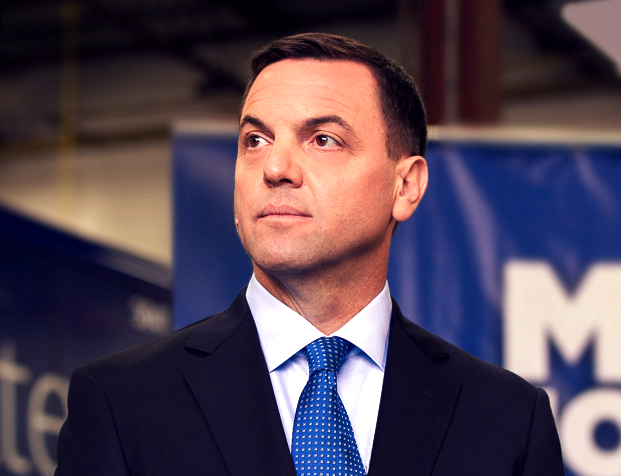Canada News
PC Leader Tim Hudak tries to woo new Canadians

PC Leader Tim Hudak. Photo courtesy of Hudak’s Facebook page.
TORONTO — A Progressive Conservative government would make Ontario the “number one” destination in Canada for skilled would-be immigrants, PC Leader Tim Hudak said Tuesday as he tried to woo new Canadians ahead of the June 12 election.
Speaking at a town hall meeting in east-end Toronto, Hudak said the Liberal government has been “dramatically” underutilizing the provincial nominee program, which allows provinces to recruit newcomers.
“This is about taking advantage of existing programs that the federal government has, that the (former premier Dalton) McGuinty and (Premier Kathleen) Wynne government, frankly, have turned their backs on,” Hudak said.
“I want to see Ontario as the best place for new Canadians, not Manitoba, not Saskatchewan, not Alberta, not British Columbia.”
Through the program, Ontario can nominate individuals and their families for permanent resident status based on a pre-approved job offer in the province. The federal government makes the final decision on the application.
Ontario’s nomination target, which is set by Ottawa, is 2,500 for 2014.
It’s too low, said the Tories, arguing the Liberals have not identified the job opportunities and employers that could make the best use of the program.
The PCs, if elected, say they’d work with the federal government to raise the nomination target for Ontario.
“We see immigration as a major driver of our economy now and into the future under a PC government,” Hudak said, promising to give new Canadians “an accelerated path to live and work in our province.”
The Liberals, however, said they’ve worked hard to raise targets under the program over the past few years, and said the Harper government was to blame for allocating Ontario a far smaller share than some other provinces.
“Ontario has been advocating for years now, for more of those spots,” said Liberal MPP Michael Coteau, the province’s minister for citizenship and immigration.
“Our party has been consistent since we’ve been in power that newcomers play a vital role in the building of Ontario, they always have.”
Coteau also took issue with the timing of Hudak’s pledge, arguing the Progressive Conservatives rarely brought up issues related to newcomers when the legislature was in session.
“If he’s really serious about this issue he needs to talk about this consistently not just when an election comes up and he has to go after votes,” Coteau said. “He’s using this for political gain at this point.”
Hudak’s attempt to appeal to new Canadians is a shift from the province’s last election campaign in 2011, when he was dogged by controversial remarks about a Liberal promise to provide tax credits for companies that hired new immigrants.
At the time, he said the Liberal pledge was an affirmative action program for “foreign workers.”
In an effort to now frame himself as the party leader with the best plan for new immigrants, Hudak vowed to make Ontario “the number one place for skilled new Canadians in our entire country.”
The PC’s plan to create a million jobs in the next eight years and eliminate the province’s $12.5-billion deficit by 2016-17 — a year earlier than the Liberals — will make Ontario the destination of choice, Hudak said.
As premier, Hudak said he’d also work to make sure new immigrants have their international credentials more easily recognized so they can work in high-skilled jobs.
In making his pitch to an audience at a Chinese cultural centre, Hudak used skilled international students in particular as an example of the kind of new immigrant he’d like to have stay on and build a life in Ontario.
Yet Hudak sidestepped a question about whether he’d lobby his Conservative federal cousins to alter an upcoming change to citizenship laws that would do away with a provision that eased the path to citizenship for those who live in the country before becoming permanent residents — a rule that benefited foreign students.
Under current laws, for individuals like international students, foreign workers or live-in caregivers, every day spent in Canada as a non-permanent resident counts as a half day of residence needed for their citizenship application, up to a maximum of two years.
A new citizenship bill plans to eliminate that provision.
Later on Tuesday, Hudak took his campaign into rural southwestern Ontario, where he touted his plan to lower hydro rates by ending certain wind and solar subsidies, reduce the “regulatory burden” on small businesses and end what he called the “rural urban divide.”
He was, however, confronted at a town hall in Woodstock, Ont., by a woman who called herself “a long-time very dedicated” Conservative who was deeply concerned about how his plan to cut 100,000 public sector jobs would affect emergency services in her community.
Hudak said the province sets standards to ensure a basic level of service is met and a PC government would maintain those standards.
“But there will be changes,” he warned. “We need to make sure we clear the way for more jobs and more investment in our province.”





















